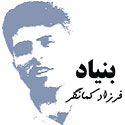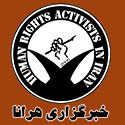AMNESTY INTERNATIONAL
PRESS RELEASE
Embargoed until 0001 GMT 30 July 2008
Iran: End discrimination against the Kurdish minority
Iran’s government is failing in its duty to prevent discrimination and human rights abuses against its Kurdish citizens, particularly women, said Amnesty International in a new report published today. The organization expressed fears that the repression of Kurdish Iranians, particularly human rights defenders, is intensifying.
The report cites examples of religious and cultural discrimination against the estimated 12 million Kurds who live in Iran and form around 15 per cent of the population.
It focuses on issues related to housing, education and employment. Human rights defenders and media workers are also being targeted for speaking out.
“Iran’s constitution provides for equality of all Iranians before the law. But, as our report shows, this is not the reality for Kurds in Iran. The Iranian government has not taken sufficient steps to eliminate discrimination, or to end the cycle of violence against women and punish those responsible,” said Amnesty International.
The report says that Kurdish women face a double challenge to have their rights recognized — as members of a marginalised ethnic minority, and as women in a predominantly patriarchal society.
Although women and girls form the backbone of economic activity in the Kurdish areas, strict social codes are used to justify denial of their human rights. Such codes mean that it can be very difficult for government officials to investigate inequalities in girls’ education, early and forced marriages, and domestic violence against Kurdish girls and women — and the severe consequences of some of these abuses, including “honour killings” and suicide.
“Kurdish women are victims of violence on a daily basis and face discrimination from state officials, groups or individuals, including family members. Iranian authorities are obliged to exercise due diligence in eradicating violence against women in the home and in the community but this just isn’t happening,” Amnesty International said.
The report Iran: Human rights abuses against the Kurdish minority recognizes that while expression of Kurdish culture, such as dress and music, is generally respected and that the Kurdish language is used in some broadcasts and publications, the Kurdish minority continues to suffer deep-rooted discrimination.
Recent cases have highlighted particular human rights violations involving Kurds:
* Farzad Kamangar, Ali Heydariyan and Farhad Vakili, all ethnic Kurds, were sentenced to death in February 2008 after conviction of “moharebeh”, (enmity against God), following a grossly flawed process that fell far short of international standards for a fair trial. This is a charge levelled against those accused of taking up arms against the state, apparently in connection with their alleged membership of the armed group, the Kurdistan Workers Party (PKK), which carries out attacks in Turkey. Ali Heydariyan and Farhad Vakili were also sentenced to 10 years’ imprisonment, apparently for forging documents. Under Iranian law, they must serve their prison sentences before being executed.
“Human Rights Activists in Iran” reported that when prison authorities at Raja’i Shahr prison in Tehran province told Farzad Kamangar, a 32 year old teacher, of the Supreme Court’s decision, they asked him to write a letter seeking clemency. He refused to do this, as it would have been an acknowledgement of guilt, and he has always denied committing any crime. On 11 July his death sentence was upheld by the Supreme Court and could be carried out at any time.
Amnesty International has previously raised many of the concerns and cases in this report with the Iranian authorities but without adequate response. They rarely respond to the organization and have not permitted Amnesty International access to Iran to investigate human rights for more than 28 years.
END/
Public Document
****************************************
For more information please call Amnesty International’s press office in London, UK, on +44 20 7413 5566 or email: press@amnesty.org
International Secretariat, Amnesty International, 1 Easton St., London WC1X 0DW, UK



